|
|
|
|
|
|
|
|
|
No Arctic events are scheduled for today.
|
Media
Ice Roads and Tundra Travel: Rural Arctic Access Complicated by Warmer Winters. The winter ice road season is underway on the North Slope. Sufficiently low temperatures and deep snowpack have allowed for the start of off-road tundra travel across many state lands around the oil patch. Late December and early January starts to the off-road season have become normal as higher temperatures continue to mark the winter months across most of the Arctic. While industry has had to adapt to changes, many locals are still struggling to find a new normal amid the shifting seasons. Anchorage Daily News
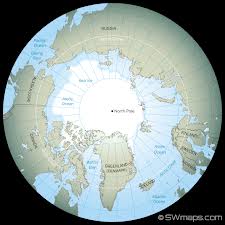 Making the Arctic Accessible for Excellent Science. Making the Arctic Accessible for Excellent Science. Making the Arctic accessible for excellent science EU funds an Arctic Research Icebreaker Consortium, which will provide researchers with improved access to research icebreakers. Fourteen partners from thirteen countries including two North American partners from USA and Canada have joint forces to improve the capacities for marine-based research in the ice-covered Arctic Ocean. In the project "ARICE- Arctic Research Icebreaker Consortium", they aim at better coordinating the existing polar research fleet, at offering scientists access to six research icebreakers and at collaborating closely with the maritime industry. The European Commission funds the project, which is coordinated by the German Alfred Wegener Institute, Helmholtz Centre for Polar and Marine Research (AWI), with 6 million Euros. The project kick-off meeting takes place at the German Maritime Museum in Bremerhaven 6th to 7th February 2018. EurekAlert
Subsea Cables in a Thawing Arctic. China has made a significant foray into the Arctic with the creation of a data "silk road." Preliminary planning of a Chinese and Finnish-led trans-Arctic cable along the Arctic's Northeast Passage in partnership with Japan and Norway is underway. The project, essentially a relaunch of a stagnated Russian initiative, presents stark risks in affording Moscow and Beijing potential influence over global telecommunications. Maritime Executive
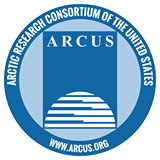 Empowering Arctic Indigenous Scholars and Making Connections: Applications due February 15, 2018. Empowering Arctic Indigenous Scholars and Making Connections: Applications due February 15, 2018. To empower Indigenous scholars and provide a key opportunity for officials at U.S. government agencies, non-governmental organizations, and other groups working on Arctic issues to learn and integrate information/perspectives from multiple Arctic knowledge systems, ARCUS and ICC Alaska invite applications from and/or nominations of leading Arctic Indigenous scholars to travel to Washington D.C. Two scholars will be selected to participate in 2018 and travel expenses and per diem will be provided. While the selected Arctic Indigenous Scholars are in D.C., ARCUS and ICC Alaska will facilitate meetings with officials at relevant U.S. government agencies, non-governmental organizations, and other groups, where such scholars will be able to share their interests, learn of available resources, build toward collaborative relationships, and provide on-the-ground perspectives to key decision-makers. Also, Indigenous Scholars will provide an open seminar/webinar to Arctic policy-makers and others interested in the Arctic. Arctic Research Consortium of the United States
|
|
Future Events
The Polar Silk Road: China's Arctic Ambitions, February 6, 2018 (Washington, DC USA). On January 26, 2018, Vice Minister of Foreign Affairs Kong Xuanyou unveiled "China's Arctic Policy." The country's self-classification as a Near-Arctic State is an important step in the region's development, and when combined with other objectives indicates rising Chinese ambitions in Arctic affairs. How does a Polar Silk Road align with the more expansive Belt and Road Initiative? What opportunities and risks does China's aspirations in the Arctic present for the US, the region and the globe? In this Ground Truth Briefing, five regional experts will discuss China's emerging Arctic presence.
Global Leaders Forum: Finland's Priorities as Chair of the Arctic Council, February 7, 2018 (Washington, DC USA). The Center for Strategic & International Studies will host a conversation with Mr. Timo Soini, Minister of Foreign Affairs Finland. As Finland's chairmanship of the Arctic Council approaches the one year mark, Minister Soini will update attendees on Finland's priorities including environmental protection, strengthening connectivity, meteorological cooperation, and education. A critical partner of the United States in the High North, Finland continues to explore the Arctic's economic potential and advocate for the region's sustainable development, while also assuring the protection of the climate and ecosystems. Minister Soini will also discuss the increasing engagement of non-Arctic states in Arctic cooperation.
ARCUS DC Arctic Research Seminar: Promoting Research on Mental Health, Resilience, and Wellbeing in the Arctic, February 12, 2018 (Washington, DC USA and via webinar) One of the goals for the IARPC Arctic Research Plan: FY2017-2021 is to "Enhance understanding of health determinants and improve the wellbeing of Arctic residents." Specific research objectives under this goal include but are not limited to supporting integrative approaches to human health that recognize the connections among people, wildlife, the environment, and climate; promoting research, sustainable development, and community resilience to address health disparities associated with underlying social determinants of health and wellbeing; and increasing understanding of mental health, substance abuse, and wellbeing for Alaskan youth. Following the efforts of the RISING SUN initiative under the 2015-2017 US Chairmanship of the Arctic Council, which developed community-based and prioritized outcomes to evaluate suicide prevention interventions among Indigenous populations across the circumpolar Arctic, the National Institute of Mental Health (NIMH) of the National Institutes of Health (NIH) is committed to furthering research focused on reducing the burden of suicide and promoting resilience among Indigenous youth. Specifically, through cooperative agreements, NIMH has provided funding to establish and support regional collaborative hubs, including in Alaska, whose research teams will (a) conduct preventive interventions research, including strengths-based/resilience-focused approaches, with the goal of reducing suicide in indigenous youth, and (b) conduct outreach and dissemination activities to promote community engagement in research activities and enable community decision-makers to use science-based information to develop and assess mental health policies and programs. This webinar will provide an overview of research and other activities supported by the NIMH/NIH that aims to improve the mental health and wellbeing of Arctic residents.
Alaska Forum on the Environment, February 12-16, 2018 (Anchorage, Alaska)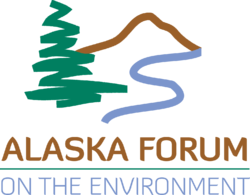 . AFE is a statewide gathering of environmental professionals from government agencies, non-profit and for-profit businesses, community leaders, Alaskan youth, conservationists, biologists and community elders. The diversity of attendees sets this conference apart from any other. The 2018 event will be our 20th year providing a strong educational foundation for all Alaskans and a unique opportunity to interact with others on environmental issues and challenges. . AFE is a statewide gathering of environmental professionals from government agencies, non-profit and for-profit businesses, community leaders, Alaskan youth, conservationists, biologists and community elders. The diversity of attendees sets this conference apart from any other. The 2018 event will be our 20th year providing a strong educational foundation for all Alaskans and a unique opportunity to interact with others on environmental issues and challenges.
A Changing Arctic, Registration closes March 1, 2018 (University of Oslo). The University of Oslo will offer a course this summer on the changing Arctic. Registration closes March 1st. The Arctic region has gained increased public, political, commercial and academic interest over the last decade. High-energy prices and technological advances have made it possible, if not yet commercially attractive, to exploit petroleum resources in the area. Climate change and the retraction of the polar ice have opened new sea transportation routes, considerably shortening the distance from Europe and North America to parts of Asia. The demand for high-quality white fish from the Barents Sea is steadily rising on international markets. States, international organizations and private interests, including emerging economies in Asia, now show a keen interest in the High North and the Arctic at large.
Methane Variation Over Terrestrial and Marine Arctic Areas (2010-2016): IASI Satellite Data, March 13, 2018 (Silver Spring, Maryland USA). There is evidence that methane is being released into the atmosphere at high northern latitudes as the Arctic warms up. Methane concentration in the Arctic lower troposphere was estimated between 2010 and 2016 with the Infrared Atmospheric Sounding Interferometer (IASI), a thermal IR spectrometer orbiting the Earth on a satellite MetOp-A. The area studied encompasses the Barents/ Kara seas and the Wester Siberian Lowland (WSL), one of the most important methane sources in high northern latitudes. This event is a NOAA's National Ocean Service Science Seminar.
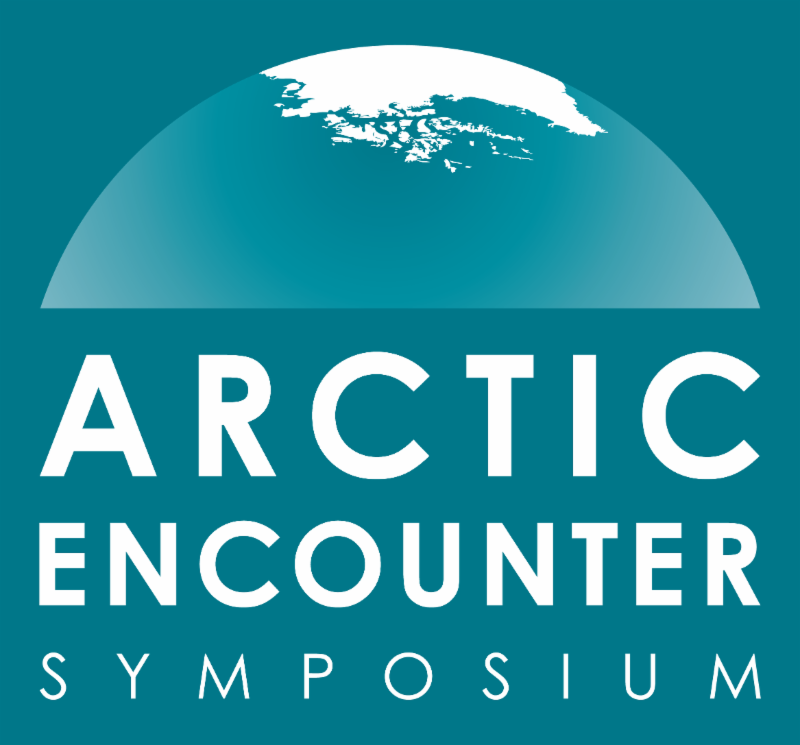 5th Annual Arctic Encounter Symposium (AES), April 19-20, 2018 (Seattle, WA, USA) 5th Annual Arctic Encounter Symposium (AES), April 19-20, 2018 (Seattle, WA, USA) - The Arctic Encounter, the largest annual Arctic policy conference in the U.S., will convene policymakers, industry leaders, scientists, Arctic artists and musical performers, and other stakeholders to debate and discuss emerging Arctic challenges and opportunities including policy, innovation, security, and development. The mission of AES is to raise awareness, engage challenges, and develop solutions for the future of the Arctic region and the people who live there. The 5th annual AES will take place in downtown Seattle at the Bell Harbor International Conference Center on Pier 66.
2018 North by North Festival, April 23-29, 2018 (Anchorage, Alaska USA). The North by North Festival captures the spirit of Alaska and the Arctic - to address our challenges and opportunities with Northern innovation and resilience, to build on a rich history and to ensure a future full of promise. The Festival is for the North, and organized by Northerners, with goals of sustainability, livability and growth. The Festival brings innovators from across Alaska, the nation and other Arctic regions to collaborate and address local and circumpolar challenges. Through knowledge, governance, business, design, film, music, food, literature and art, we celebrate the North.
Council on Earth Cryology, May 15-16, 2018 (Moscow, Russian Federation). Scientific council on Earth cryology of Russian Academy of Sciences together with Department of Geocryology of Faculty of Geology of Lomonosov Moscow State University, Institute of the Earth Cryosphere, the Tyumen Scientific Senter, Melnikov Permafrost Institute (Yakutsk) of the Siberian Branch of the Russian Academy of Science holds on May 15 - 16, 2018 an enlarged meeting with participation of the Russian and foreign scientists, engineers and experts: "Current problems of geocryology." The meeting of Scientific council on Earth Cryology of RAS has the status of the International meeting. The publication of materials in the collection of reports is planned. Submissions (Submission Form), offers on cooperation, support of a conference and papers (Sample of Paper) to e-mail: cryoconf18@gmail.com
The Effects of Climate Change on the World's Oceans, June 4-8, 2018 (Washington, DC USA). The 4th International Symposium will bring together experts from around the world to better understand climate impacts on ocean ecosystems - and how to respond. The event is hosted by a variety of groups including International Council for the Exploration of the Sea (ICES), N. Pacific Marine Science Organization (PICES), Intergovernmental Oceanographic Commission of UNESCO (IOC), and Food and Agriculture Organization of the United Nations (FAO).
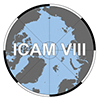
International Conference on Arctic Margins (ICAM) VIII, June 11-14, 2
The international Conference on Arctic Margins (ICAM) is a forum for earth scientists who study the Arctic. It was founded to help understand the little known Arctic geology and to foster cooperation and collaboration among Arctic researchers. There have been 7 meetings since its inception in 1991. See here for more information.
 POLAR 2018, June 15-27, 2018 (Davos, Switzerland). POLAR2018 is a joint event from the Scientific Committee on Antarctic Research (SCAR) and the International Arctic Science Committee (IASC). The SCAR meetings, the ASSW and the Open Science Conference will be hosted by the Swiss Federal Institute for Forest, Snow and Landscape Research WSL under the patronage of the Swiss Committee on Polar and High Altitude Research. The WSL Institute for Snow and Avalanche Research SLF is organizing POLAR2018. POLAR 2018, June 15-27, 2018 (Davos, Switzerland). POLAR2018 is a joint event from the Scientific Committee on Antarctic Research (SCAR) and the International Arctic Science Committee (IASC). The SCAR meetings, the ASSW and the Open Science Conference will be hosted by the Swiss Federal Institute for Forest, Snow and Landscape Research WSL under the patronage of the Swiss Committee on Polar and High Altitude Research. The WSL Institute for Snow and Avalanche Research SLF is organizing POLAR2018.
Arctic Observing Summit 2018, June 24-26, 2018 (Davos, Switzerland). The Arctic Observing Summit (AOS) is a high-level biennial summit that provides a platform to address urgent and broadly recognized needs of Arctic observing across all components of the Arctic system. AOS 2018 will be held in Davos, Switzerland ( June 24-26) and will focus on pressing issues in the implementation and support of sustained observations that can be addressed through a business-case lens. To that end, short submissions are requested that address any and all aspects of the overarching theme and sub-themes. Additional information can be found here.
17th International Congress of Circumpolar Health (ICCH17), August 12-15, 2018 (Copenhagen, Denmark). The ICCH congresses are held every third year in different locations in the circumpolar area and represent the largest scientific meetings worldwide on circumpolar health. The ICCH congresses serve as the primary source of information exchange and scholarly communication in issues relating to circumpolar health. More than 750 participants generally register and participate in each Congress, and more than 400 scientific papers or posters are usually presented.
UArctic Congress 2018, September 3-7, 2018 (Oulu and Helsinki, Finland).
The UArctic Congress 2018 will bring together key UArctic meetings and a science conference into one single gathering, including business meetings of the Council of UArctic, Rectors' Forum, Student Forum, and Thematic Networks & UArctic Institutes Leadership Team. The Congress is an integral part of the Finland's Arctic Council chairmanship program, and open to the public. The event will highlight the themes and priorities of the Finnish chairmanship, including the goals of the United Nations' 2030 Agenda for Sustainable Development, and the Paris Agreement under the UN Framework Convention on Climate Change.
The second Arctic Biodiversity Congress is hosted by the Conservation of Arctic Flora and Fauna (CAFF), the biodiversity working group of the Arctic Council, and the Ministry of the Environment, Finland. The second Arctic Biodiversity Congress will build on the success of the first Congress, held in 2014 in Trondheim, Norway, and will bring together scientists, policymakers government officials, Indigenous representatives, Traditional Knowledge holders, industry, non-governmental organizations, and others to promote the conservation and sustainable use of Arctic biodiversity.
|
|

  
4350 N. Fairfax Drive, Suite 510
Arlington, VA 22203, USA
External links in this publication, and on the USARC's World Wide Web site ( www.arctic.gov) do not constitute endorsement by the US Arctic Research Commission of external Web sites or the information, products or services contained therein. For other than authorized activities, the USARC does not exercise any editorial control over the information you may find at these locations. These links are provided consistent with the stated purpose of this newsletter and the USARC Web site.
|
|
|
|
|
|
|
|
|
 Making the Arctic Accessible for Excellent Science. Making the Arctic accessible for excellent science EU funds an Arctic Research Icebreaker Consortium, which will provide researchers with improved access to research icebreakers. Fourteen partners from thirteen countries including two North American partners from USA and Canada have joint forces to improve the capacities for marine-based research in the ice-covered Arctic Ocean. In the project "ARICE- Arctic Research Icebreaker Consortium", they aim at better coordinating the existing polar research fleet, at offering scientists access to six research icebreakers and at collaborating closely with the maritime industry. The European Commission funds the project, which is coordinated by the German Alfred Wegener Institute, Helmholtz Centre for Polar and Marine Research (AWI), with 6 million Euros. The project kick-off meeting takes place at the German Maritime Museum in Bremerhaven 6th to 7th February 2018. EurekAlert
Making the Arctic Accessible for Excellent Science. Making the Arctic accessible for excellent science EU funds an Arctic Research Icebreaker Consortium, which will provide researchers with improved access to research icebreakers. Fourteen partners from thirteen countries including two North American partners from USA and Canada have joint forces to improve the capacities for marine-based research in the ice-covered Arctic Ocean. In the project "ARICE- Arctic Research Icebreaker Consortium", they aim at better coordinating the existing polar research fleet, at offering scientists access to six research icebreakers and at collaborating closely with the maritime industry. The European Commission funds the project, which is coordinated by the German Alfred Wegener Institute, Helmholtz Centre for Polar and Marine Research (AWI), with 6 million Euros. The project kick-off meeting takes place at the German Maritime Museum in Bremerhaven 6th to 7th February 2018. EurekAlert Empowering Arctic Indigenous Scholars and Making Connections: Applications due February 15, 2018. To empower Indigenous scholars and provide a key opportunity for officials at U.S. government agencies, non-governmental organizations, and other groups working on Arctic issues to learn and integrate information/perspectives from multiple Arctic knowledge systems, ARCUS and ICC Alaska invite applications from and/or nominations of leading Arctic Indigenous scholars to travel to Washington D.C. Two scholars will be selected to participate in 2018 and travel expenses and per diem will be provided. While the selected Arctic Indigenous Scholars are in D.C., ARCUS and ICC Alaska will facilitate meetings with officials at relevant U.S. government agencies, non-governmental organizations, and other groups, where such scholars will be able to share their interests, learn of available resources, build toward collaborative relationships, and provide on-the-ground perspectives to key decision-makers. Also, Indigenous Scholars will provide an open seminar/webinar to Arctic policy-makers and others interested in the Arctic. Arctic Research Consortium of the United States
Empowering Arctic Indigenous Scholars and Making Connections: Applications due February 15, 2018. To empower Indigenous scholars and provide a key opportunity for officials at U.S. government agencies, non-governmental organizations, and other groups working on Arctic issues to learn and integrate information/perspectives from multiple Arctic knowledge systems, ARCUS and ICC Alaska invite applications from and/or nominations of leading Arctic Indigenous scholars to travel to Washington D.C. Two scholars will be selected to participate in 2018 and travel expenses and per diem will be provided. While the selected Arctic Indigenous Scholars are in D.C., ARCUS and ICC Alaska will facilitate meetings with officials at relevant U.S. government agencies, non-governmental organizations, and other groups, where such scholars will be able to share their interests, learn of available resources, build toward collaborative relationships, and provide on-the-ground perspectives to key decision-makers. Also, Indigenous Scholars will provide an open seminar/webinar to Arctic policy-makers and others interested in the Arctic. Arctic Research Consortium of the United States






